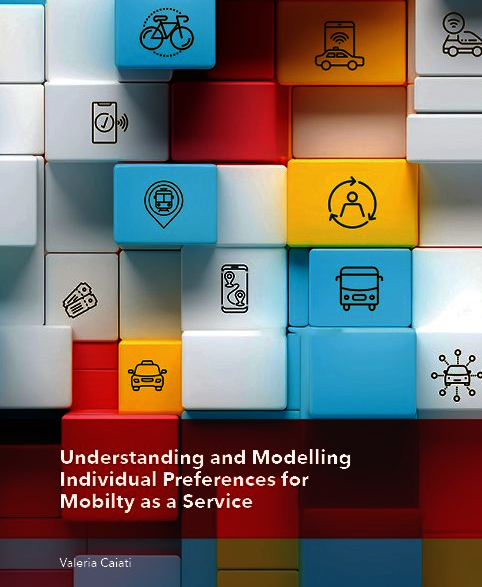Understanding and modelling individual preferences for mobility as a service
Valeria Caiati defended her PhD thesis at the Department of Built Environment on March 27th.

Imagining the future of transportation, have you ever wished for an all-in-one solution that covers all your travel needs? That's the promise of Mobility as a Service, which aims to simplify your travel experience. Imagine having one app, making one payment, and gaining access to buses, trains, taxis, shared cars, and bikes. With plans tailored to your lifestyle, it’s like selecting your favorite streaming service plan but for your daily journeys. But the question is, are we ready for this transportation revolution? For her PhD research, Valeria Caiati zoomed into the Mobility as a Service demand side, exploring what makes people embrace this innovation. Is it the service benefits, prices, or perhaps the influence of friends that encourages people to embrace it?

From the 20th century’s surge in private car usage to the 21st century reconsideration of car ownership, technological and cultural shifts have shaped how we move. Today, Mobility as a Service (MaaS) has emerged as an innovative concept, blending various transportation options into one system. The goal is to keep the freedom and flexibility we enjoy with our own cars while also benefiting the environment and our cities.
While MaaS initiatives have been tested in some cities, their full development is still in its early stages. Understanding if people are ready to embrace MaaS is crucial for urban planners and service providers.
In her PhD research, Valeria Caiati explored individuals' willingness to adopt this mobility paradigm and the factors influencing their decisions. The empirical investigation spanned multiple dimensions, including the impact of service attributes, pricing structures, social influence, as well as users' socio-demographic characteristics, attitudes, and perceptions.

Experiment
To reach this goal, Caiati invited participants from Amsterdam and Eindhoven to participate in an online survey, receiving a total of 1078 valid questionnaires.
In addition to collecting personal information like socio-demographics and transportation-related details, she designed a stated choice experiment, where respondents made choices regarding whether to subscribe to a MaaS plan, the mix of transportation modes to include in their plans, and whether to upgrade the basic subscription with additional features and service conditions. She also asked them about their thoughts on using new ideas and app-based mobility services.
Key factors shaping MaaS adoption
The data were analyzed through the application of discrete choice models, a fundamental technique widely used to model individual behavior.
Results indicated a cautious stance among respondents, with a limited inclination to widely accept this innovative service. The monthly subscription price emerged as a critical factor, with respondents displaying high sensitivity to this aspect.
The study also highlighted a significant link between the adoption patterns within social circles and an individual's likelihood to subscribe to MaaS, suggesting a potential ripple effect. Positive service reviews also played significant influence, emphasizing the power of social influence.
Beyond demographics and transport-related traits, Caiati explored attitudes and perceptions towards MaaS, discovering their strong impact on subscription preferences, where personal innovative attitude, perceived benefits, user experience and trust drive adoption while privacy concerns pose a challenge.
Pricing schemes
The research further delved into pricing schemes and bundle configurations, identifying public transportation offered with unlimited rides as the most preferred option. Preferences varied based on socio-demographic factors, revealing diverse user profiles and emphasizing the need for tailored MaaS offerings.
Exploring supplementary features, the study found preferences for personalized trip recommendations, nationwide service access, and flexible contract conditions, while parking payment via a MaaS app was less attractive.
In light of these findings, the research provides practical guidance for urban planners and service providers, offering a basis to understand the complexities of MaaS adoption.
By fine-tuning pricing models, leveraging social dynamics, and focusing on user-centric design, the prospect of realizing a more sustainable and efficient urban mobility future may become more feasible.
Title of PhD thesis: Understanding and modelling individual preferences for mobility as a service. Supervisors: Soora Rasouli and Maria Kamargianni.